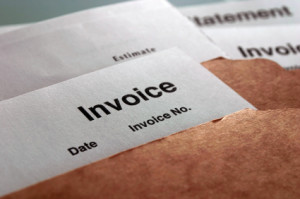
Billing: How Freelance Attorneys Get Paid
 The changing demands fueling the growth of freelance work in the legal profession are also causing the slow extinction of the traditional billable hour. Many legal scholars have declared the downfall of BigLaw and the rise in popularity of alternative billing structures. So where do freelance attorneys fall in the greater spectrum of billing for legal work? Freelance billing is a two-part formula: how much to charge (rate) and how to apply the rate (structure).
The changing demands fueling the growth of freelance work in the legal profession are also causing the slow extinction of the traditional billable hour. Many legal scholars have declared the downfall of BigLaw and the rise in popularity of alternative billing structures. So where do freelance attorneys fall in the greater spectrum of billing for legal work? Freelance billing is a two-part formula: how much to charge (rate) and how to apply the rate (structure).
Freelance attorneys set their rates based on several factors, including years of experience, geographic location, and type of freelance work being done. A freelance attorney with ten years of experience working in a large metropolitan area on brief-writing projects is going to charge more than a freelance attorney with five years of experience working in a remote location on document review projects. Generally, rates for freelance work need to be set lower than rates charged to direct clients by solo practitioners or law firms. Why? Because hiring a freelance attorney to work on part of a case or transaction needs to make good economic sense. The rate being charged by the freelance attorney needs to add value to completion of the case and cannot meet or exceed the ultimate fee being charged by the hiring attorney.
A variety of billing structures are available, including hourly, flat rate, contingency, and everything in between. Billing structure is usually driven by two factors: the type of case and how the hiring attorney is handling the legal fee. If the hiring attorney practices criminal defense and is handling an appeal, then a freelance attorney might be offered a flat rate (portion of the fee paid by the direct client to the hiring attorney) to draft the brief. But if the hiring attorney practices business litigation and needs help with on-going discovery projects, then a freelance attorney might be offered an hourly rate (billed to the direct client) to review documents and produce discovery. The billing structure for freelance work needs to exist in harmony with the structure for the fees being generated by the hiring attorney’s case or transaction.
Ultimately, freelance attorneys need to know when and how to bill appropriately for their work. Successful use of the freelance billing formula requires flexibility mixed with good business sense.

One Responseto “Billing: How Freelance Attorneys Get Paid”
Trackbacks/Pingbacks
- Discovery: How a Freelance Attorney Can Help | freelance-attorneys.com - [...] attorney to help with discovery work is temporary and cost-effective. Freelance attorneys can be paid hourly or per project,…













Great post Emerald! Another reason to consider the billing arrangement up front is that the hiring attorney may want to disclose it to the client, which may allow them to add a surcharge to account for supervision time. Typically the freelance attorney will be the lowest billing attorney on a project – but the ABA has said it’s appropriate to add a surcharge when the freelance attorney’s time is billed to the client as attorney fees, rather than costs. See ABA Formal Opinion 00-420.